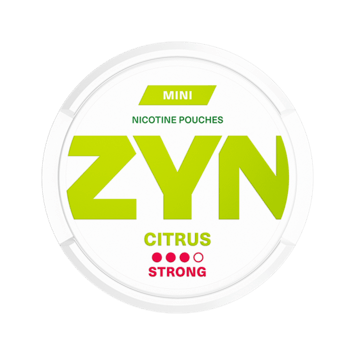What You Need to Know About Nicotine withdrawal timeline?
Philip Plainstein

Quitting smoking is tough because of nicotine. It’s addictive, messing with our body and mind. The withdrawal journey lasts about a month. The hardest part is the first week, with tough symptoms like cravings, headache, and trouble sleeping.
Many people start smoking again in the first two weeks. But remember, if you keep going, it gets easier. Physical signs will fade, the mental battle might stick around, but you can beat it.
Key Takeaways:
- Nicotine withdrawal is a challenge faced by those who want to quit smoking.
- It is caused by the addictive nature of nicotine, leading to various physical, mental, and emotional symptoms.
- The duration of nicotine withdrawal typically lasts for about a month.
- The first week, especially days 3 to 5, is the most difficult, with cravings, headaches, and insomnia.
- Most relapses occur within the first two weeks, but perseverance can lead to fading physical symptoms while mental and emotional challenges may persist.
Physical Symptoms of Nicotine Withdrawal
When you quit smoking, your body will show different signs. These signs come from the lack of nicotine. Nicotine is in cigarettes, making them very addictive.
Your hunger might grow when you quit smoking. This happens because nicotine usually makes you less hungry. Cravings for food, especially carbs and sweets, will become stronger.
You may feel strong urges for nicotine. These nicotine cravings start soon after your last cigarette. They can be hard to ignore at first, lasting several weeks. But, they will start to fade as time goes on.
Soon, a cough might start. It is your body clearing your lungs. This shows that your body is healing. This cough should get better as your lungs heal.
Sometimes, you might get headaches. These headaches can be bad or not too serious. They might also come with dizziness. They will go away as your body gets used to not having nicotine.
You could feel very tired too. Nicotine wakes you up, so without it, you might feel especially weary. This tiredness is only for a while. Later, you should feel more energetic.
Getting constipated is another issue after quitting. Since nicotine can help with going to the toilet, your body might slow down without it. To feel better, drink lots of water, eat foods with lots of fiber, and stay active.
Mental and Emotional Symptoms of Nicotine Withdrawal
Nicotine withdrawal brings many mental and emotional signs. Anxiety hits a lot of people, feeling very strong. It stays for a few weeks as your body copes without nicotine. Depression might also show up, mainly if you’ve been anxious or sad in the past. But it usually goes away within a month.
Getting easily annoyed or upset is quite common, too. You might also feel like your mind is cloudy and have trouble focusing. How strong and long these feelings last can differ for everyone.
Nicotine Withdrawal Timeline: Immediate Effects
As soon as you quit smoking, you’ll feel changes right away. In the first 30 minutes to 4 hours, you might crave a cigarette and feel anxious. By the 10-hour mark, irritability and hunger might show up. A day later, you could feel very anxious and want a cigarette more.
After two days, you might get headaches as nicotine leaves your body. Three days in, nicotine is mostly gone, so cravings lessen but anxiety can rise.
Nicotine Withdrawal Timeline: First Week
The first week of quitting smoking is very important. People can face a lot of symptoms as their body deals with no nicotine. This is what happens in the first week without nicotine.
Cravings
You may really want a cigarette in the first week. The feeling can be strong at first but gets better over time. Remember, these are just cravings. Stay strong and you can beat them.
Headaches
Headaches are common when you stop smoking. They can be light or a bit strong and might last a few days. Drinking lots of water and keeping calm can help with the headaches.
Sore Throat
If you smoked a lot, you might get a sore throat. It’s the body’s way of healing from the smoking damage. Drinking warm drinks and avoiding things that irritate your throat, like spicy food, will help.
Anxiety
Feeling anxious is also normal in the first week after quitting. Not having nicotine can make you feel on edge. Trying to relax by breathing deeply or meditating can make you feel better.
| Symptoms | Severity | Duration |
|---|---|---|
| Cravings | High (initially), decreasing | Throughout the week |
| Headaches | Mild to moderate | A few days |
| Sore Throat | Mild to moderate (heavy smokers) | A few days |
| Anxiety | Moderate | Throughout the week |
Quitting smoking affects everyone differently. While these symptoms may bother you in the first week, they will not last forever. Know that you can ask for help if you need it. Friends, family, and doctors are there for support.
Nicotine Withdrawal Timeline: 2-4 Weeks
Between weeks 2 and 4, you’ll start feeling better after quitting smoking. The tough parts can still bother you, like brain fog and less energy. But, these problems will slowly go away, and you’ll feel happier.
Feeling foggy in the head could make doing things hard. This should get better as time goes by. Eventually, you’ll be sharper and can focus more.
You might cough more when you first quit because your body is getting rid of smoke toxins. This is normal. But, the cough will ease up, and your lungs will get healthier.
Your hunger might act up too, with lots of cravings. In weeks 2 to 4, your eating will settle. It should match what your body needs better.
Your mood might lift, and you could worry less by this point. Everybody’s path is different, but many start to feel better.
“During weeks 2 to 4, you may still experience brain fog and a lack of energy, but these symptoms should gradually subside, allowing for improved mental clarity and overall well-being.”
Remember, quitting smoking feels different for everyone. Some find it not as hard, yet others still struggle. Just keep going with your quitting plan and get help when you need it.
Nicotine Withdrawal Timeline: Beyond 5 Weeks
After 5 weeks without nicotine, you may face bigger mental challenges than physical ones. The physical symptoms will start to go, but you might still feel mentally and emotionally low. It will take a lot of strength and determination to keep going without smoking.
By this point, you should watch out for mood swings, anxiety, and trouble focusing. These can come and go. They are different for each person based on how much they used to smoke and how tough they are.
Staying Committed and Seeking Support
It’s very important to keep to your quitting goal now. Think of the good reasons you stopped. Look back on the good changes, and let them push you forward.
Also, getting help is crucial. Turn to those who care about you for support and advice. You might also think about joining programs or seeing a counselor. They can really help with the mental side of quitting.
Remember that Rome wasn’t built in a day, and overcoming nicotine withdrawal takes time and perseverance. Stay strong, believe in yourself, and don’t hesitate to ask for help when needed.
Tracking Progress and Celebrating Milestones
Keep an eye on how far you’ve come. A journal can help you remember milestones and how you felt at each point. This is a good way to see your success.
Celebrate each win, even if it’s just another day without smoking. Be proud and treat yourself. It will keep you on the right track and make you feel good.
Persistent Mental Challenges and Other Strategies
If you’re still struggling, consider more help. Relaxation, like deep breathing or yoga, can help. So can exercise. They both lift your mood.
Find things you enjoy that don’t involve smoking. Hobbies, time with loved ones, or a good story can help. The idea is to have fun without cigarettes.
| Weeks Since Quitting | Main Challenges | Recommended Strategies |
|---|---|---|
| 5+ | Mental and emotional hurdles |
– Stay committed – Seek support – Track progress and celebrate milestones – Practice relaxation techniques – Engage in hobbies and distracting activities |
Everyone’s journey is different. Be patient and kind to yourself. Setbacks are common and part of the quit process. With time and support, you’ll overcome the mental challenges and come out stronger.
Understanding Nicotine Withdrawal
Nicotine withdrawal happens because nicotine is addictive. It alters how the brain enjoys rewards. When you stop using nicotine, your body and mind feel different.
You might feel the urge to smoke, sadness, or get easily mad. Also, it’s hard to focus and you could feel anxious. These are the body’s way of coping without nicotine.
When you quit, your brain learns to live without nicotine. This change can be tough. You’ll feel many symptoms because your body is adjusting.
The biggest symptom is wanting to smoke. This can happen when you’re stressed or see someone else smoke. But, learning to deal with these urges is key to quitting for good.
You may also eat more, especially carb-rich foods. Some people get headaches, feel tired, or have stomach issues. These will eventually ease up.
Quitting can affect your feelings too. You might get easily upset, restless, or find it hard to think. But, keep in mind these feelings will get better.
Nicotine withdrawal symptoms don’t last forever. They will eventually go away. The time it takes for this to happen varies from person to person.
Knowing what to expect makes quitting a bit easier. With the right information and help, you can beat nicotine withdrawal and live a non-smoking life.
Duration and Variability of Nicotine Withdrawal Symptoms
Nicotine withdrawal symptoms differ from person to person. Physical signs lessen in a few days. But, mental effects might stay longer. The strongest pain happens about 3 days after you quit. Then, you’ll start feeling better over 3-4 weeks.
Some people face tougher and longer-lasting symptoms. How much and how often you smoked could make it worse. Make sure you consider this.
Cravings and headaches are normal in the start. They’ll get better as your body gets used to no nicotine.
Mood swings and hard times focusing can last longer. This is because nicotine is addictive. It affects your brain chemistry.
Remember, everyone’s withdrawal journey is different. Some get through it quickly. For others, it takes longer. But, you can all make it.
Managing Nicotine Withdrawal
Quitting smoking means fighting through nicotine withdrawal. It’s important to use different ways to make the process easier. There are many tools and methods available to help.
Nicotine Replacement Therapy (NRT)
Nicotine replacement therapy (NRT) is a widely used method. It involves using patches, gum, or inhalers. These give your body a small amount of nicotine. This lessens your cravings and makes withdrawal symptoms easier.
These products can be bought without a prescription. You can also combine them with other ways to quit.
Medications
Sometimes, doctors might recommend certain medicines. Varenicline and bupropion are two examples. They lessen your desire to smoke. They do this by affecting how the brain reacts to nicotine.
Counseling and Support
Talking with a counsellor can really help. They give you advice and support to stop smoking. They help you find out what makes you want to smoke.
Joining a support group is also a good idea. You’ll meet others trying to quit. They share stories, offer support, and keep each other motivated.
Effective Coping Strategies
Having good ways to cope with quitting is vital. Here are some ideas that work well:
- Try deep breathing or meditation to calm your mind.
- Doing regular exercise can make you feel good.
- Avoid things that remind you of smoking to stay strong.
- Keep your mind busy with fun activities or new hobbies.
Using these strategies, along with other methods, can help you quit. You’ll be better able to deal with withdrawal and stay smoke-free.
| Treatment | Description |
|---|---|
| Nicotine Replacement Therapy (NRT) | Products like patches, gum, and inhalers give you a bit of nicotine. They help lower your cravings and withdrawal signs over time. |
| Medications | Some medicines, like varenicline and bupropion, can help you not want to smoke. They work on your brain’s nicotine signals. |
| Counseling and Support | Getting advice from a counsellor or joining a support group can really support you. They give you tips and keep you motivated. |
| Coping Strategies | Learning to relax, staying active, avoiding triggers, and finding fun things to do are smart ways to cope and reduce relapse risks. |
Positive Changes and Benefits of Quitting
Quitting smoking is hard but the rewards are huge. People who quit feel and look better. They also live longer, feeling more energetic and happier.
Improved Sense of Smell and Taste
After stopping smoking, smell and taste get much better. This happens because the body recovers from the damages of smoking. So, people can enjoy their meals more and love different foods and drinks again.
Cough Reduction
Smokers often have a bad cough. It’s because the lungs get irritated by the smoke. But, by quitting, the lungs start to heal. The cough then gets better, giving relief and letting people breathe more easily.
Easier Breathing
Stopping smoking makes breathing easier, especially when moving around. This is because the lungs get damaged by smoking, making it hard to breathe. But, without cigarettes, the lungs work better, leading to more energy and less breathing problems.
blockquote: “Quitting smoking can greatly improve breathing, especially during physical activities.”
| BENEFITS OF QUITTING SMOKING | DESCRIPTION |
|---|---|
| Improved sense of smell and taste | An enhanced ability to appreciate flavors and aromas |
| Cough reduction | A decrease in the frequency and severity of coughing |
| Easier breathing | Improved lung function, allowing for effortless breathing |
Seeking Support for Nicotine Withdrawal
When you want to beat nicotine withdrawal, the right support is key. Luckily, there are many ways to help you stop smoking.
Smokefree.gov is a great place to start. It has advice for different groups, like young people, pregnant women, and health workers. You can get the help you need to quit smoking here.
SAMHSA also runs hotlines to help. These hotlines link you with places that can offer treatment and counselling. This is professional support to get you through withdrawal.
If you like using your phone, the National Texting Portal and quitSTART app can keep you going. They send messages and tips to encourage you. They’re free and easy to use.
Don’t forget, you’re not alone in this. There’s a lot of support out there. Use these tips and tools to help you quit smoking for good.









